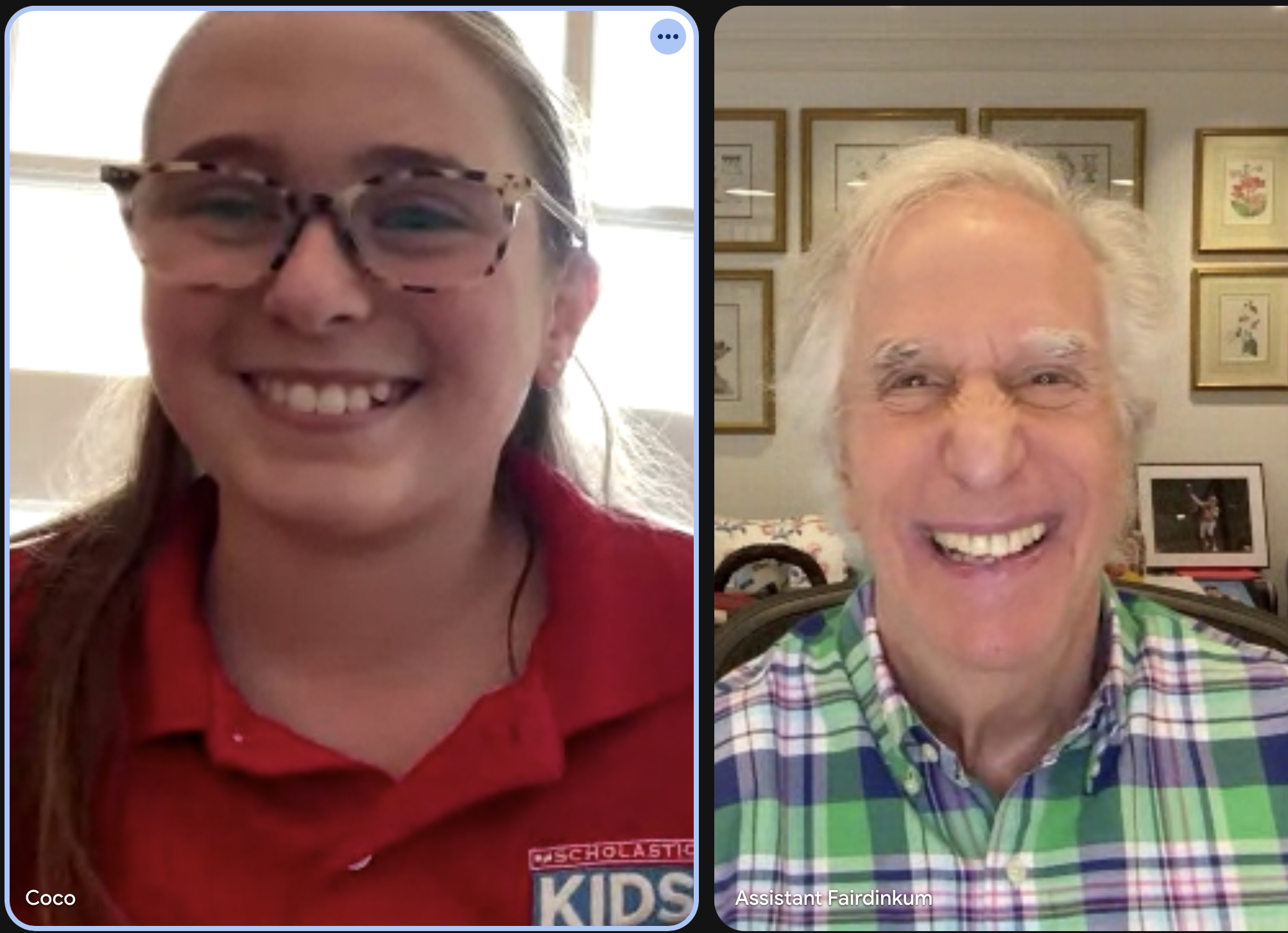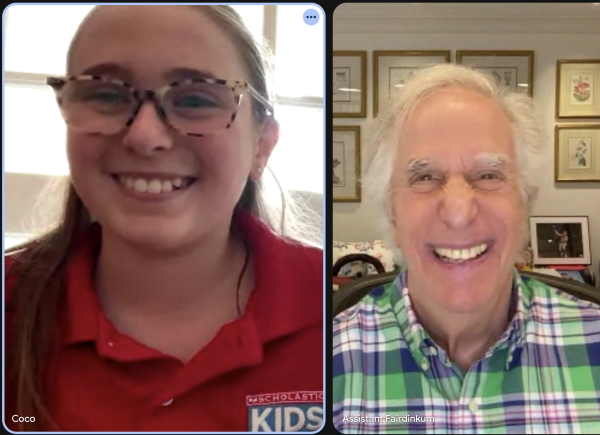KID REPORTERS’ NOTEBOOK
Henry Winkler on Dyslexia, Writing Books, and Inspiring Kids


Scholastic Kid Reporter during her interview with Henry Winkler
Henry Winkler is an actor, author and speaker. He started his career in movies and television, starring as “The Fonz” in the sitcom Happy Days. Winkler’s popular book series, Here’s Hank and Hank Zipzer, are about a boy who has a learning challenge. The inspiration came from Winkler learning to navigate his own learning challenge, dyslexia, which primarily affects a person’s ability to read, write and spell. I spoke with Winkler to learn more about his successful acting career and his New York Times bestselling series.Early in Winkler’s acting career, he had to do everything from memory because he could not always read his lines. His trouble with dyslexia never stopped him, and he worked really hard to become a successful actor. Winkler shared, “Having trouble reading never stopped me. If you love something and want to do it, it is important to keep trying.”
Winkler started writing books when he struggled to find a job after his success in Happy Days. He explained that, “After Happy Days, a friend gave me the advice to write a book series about a kid with a learning challenge.” Winkler did not initially think he could do it, but he met with writer and producer Lin Oliver, and they created the characters in the Here’s Hank and the Hank Zipzer series. Their first book Niagara Falls, or Does It was published in 2003. Winkler wanted the books to be full of humor and fun to read. “I did not want the books to be an assignment from school. I wanted kids to be able to relax and giggle. This was important to both me and Lin,” Winkler said.
The duo has published 39 books and their 40th book will publish in September of this year. He reflected on their work together, “We are a great team. She does the typing, and I do most of the talking.” Winkler is very proud of his books, and he does not have a favorite. He shared with me that he cannot believe how far he and his books have come, and he is very grateful for his family’s support.
As a child, Winkler struggled in school. He emphasized, “It does not matter how you learn. Everyone learns differently and as long as you have an imagination, that is what is important.” Winkler read his first full book at the age of 31. As a kid, he would take books from the library but would never read them. As an adult, he has kept every book he’s ever read as a sign of triumph.
Winkler reflected on how helping kids with reading challenges has changed over time. He said, “When I was in school, it was hard for kids who had learning challenges to get certain support. I think it is very important for parents and teachers to be patient.” He believes firmly that if you try hard, you will succeed, and he wants kids to live that message.
To understand how reading challenges are supported today, I spoke with Sara Weschler and Christine Milne, two reading specialists at Blessed Sacrament School in Washington D.C. Weschler explained, “I use the Orton-Gillingham approach, a strategy that teaches direct and explicit phonics techniques that help kids who have trouble reading and writing.” Both teachers agree with Winkler that it is important for parents to be patient as well as identify reading challenges early.
When asked about what books kids who have learning challenges should read Milne said, “Decodable readers are good, but it’s also important for teachers to use different voices for characters when they read aloud.”
When asked for advice for future generations, Winkler shared, “Everything would be much better if we listened to each other more.” He also added he wants Scholastic readers to know that fly fishing is a wonderful thing that takes only thirty minutes to learn, and you can perfect it the rest of your life. A final fun fact is that Winkler keeps a miniature Ruth Bader Ginsburg doll on his book shelf.
Thank you to everyone who helped make these interviews and article possible.
